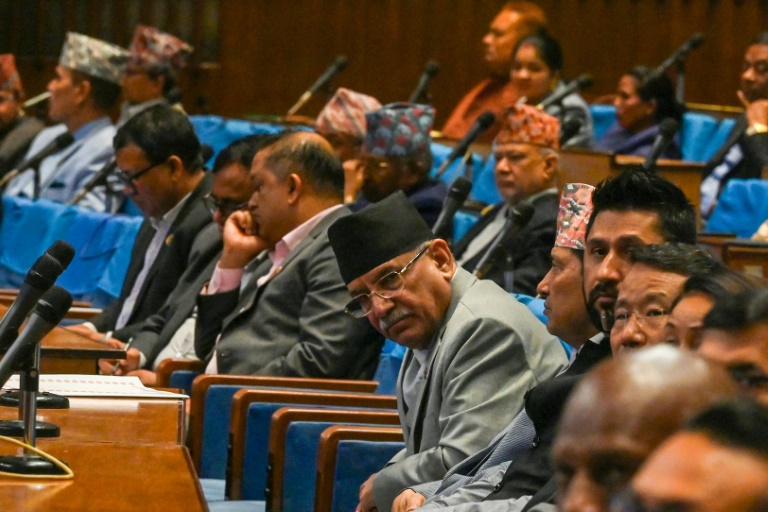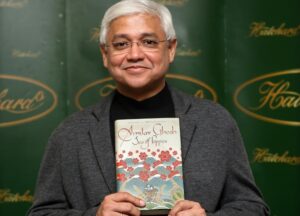Nepal’s Maoist PM loses parliamentary confidence vote

Nepali Prime Minister and former Maoist guerrilla commander Pushpa Kamal Dahal lost a vote of confidence – Copyright AFP PRAKASH MATHEMA
Paavan MATHEMA
Nepali Prime Minister and former Maoist guerrilla commander Pushpa Kamal Dahal lost a parliamentary vote of confidence on Friday barely 18 months after taking office, throwing open the Himalayan republic’s revolving door leadership.
Better known by his nom de guerre Prachanda (“The Fierce One”), Dahal led thousands of insurgents during Nepal’s decade-long civil war but switched to parliamentary politics at the conflict’s end.
The 69-year-old was elected prime minister for a third time in December 2022 but will be forced to stand down again after coalition allies withdrew their support.
“Someone like Prachanda, who opens the doors of peace with the power of a revolution, may not be born again,” Dahal said, referring to himself in the third person during a speech urging lawmakers to keep him in office.
He was able to win the support of only 63 MPs among the 258 present to vote on the future of his government.
Dahal will remain in office under a caretaker government until a parliamentary vote to elect his replacement, expected as early as Sunday.
His brief tenure was nonetheless one of the longest continuous premierships since Nepal’s monarchy was abolished in 2008 at the end of the civil war.
Only three other prime ministers had served in office longer than him over that period, and of those only one lasted more than two years.
Dahal himself had served as premier on two earlier occasions for less than a year at a time.
His Communist Party of Nepal (Maoist Centre) was the third-largest party in parliament after the 2022 poll but he managed to remain in power through deft negotiating.
Three-time premier K.P. Sharma Oli, head of the larger Communist Party of Nepal – Unified Marxist Leninist (CPN-UML) is expected to form the next government with the backing of the centre-left Nepali Congress.
Oli, 72, is then expected to yield the post to Congress leader and five-time prime minister Sher Bahadur Deuba, 78, later in the parliamentary term under a deal negotiated between the two parties.
– ‘Breaking promises’ –
Political journalist Kunda Dixit told AFP that the alliance between Deuba and Oli may prove more stable because they represented the largest two parties in parliament and were “not so ideologically opposed” to each other.
“But we have seen leaders breaking promises and back-stabbing each other in the past, so anything is possible,” he added.
Dahal’s Maoists have played a key role in Nepal’s politics for more than 20 years, after waging a decade-long insurgency against government forces that claimed more than 16,000 lives.
The civil war ended in a 2006 peace deal that abolished Nepal’s monarchy and saw the Maoists brought into government, with Dahal the first post-war premier.
Since then, a revolving door of ageing prime ministers and a culture of horse-trading have fuelled public perceptions that the government is out of touch with Nepal’s pressing problems.
The Himalayan nation of 30 million people is sandwiched between powerful neighbours India and China — with both New Delhi and Beijing jostling for influence.
Its economy has struggled since the coronavirus pandemic, which devastated the vital tourism industry and dried up remittances from the huge number of Nepalis working abroad.
Nepal’s next general elections are due in 2027.
Nepal’s Maoist PM loses parliamentary confidence vote
#Nepals #Maoist #loses #parliamentary #confidence #vote





